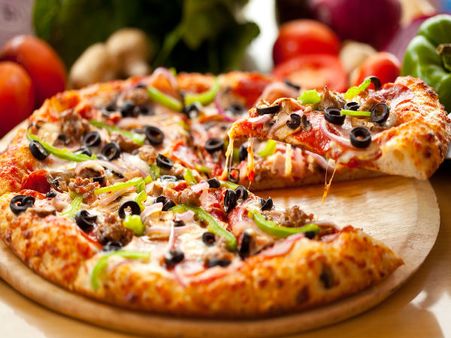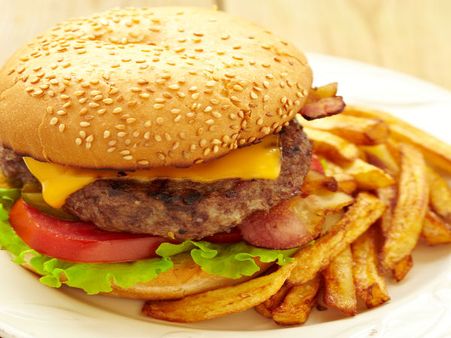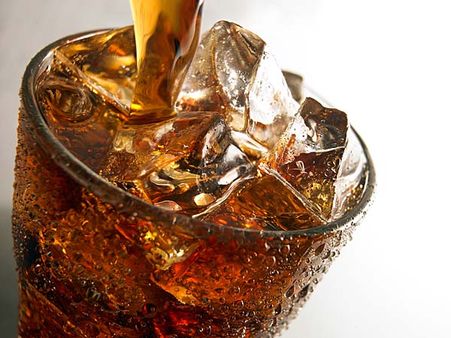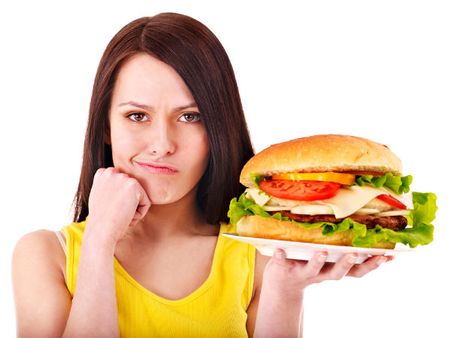Just In
- 1 hr ago

- 1 hr ago

- 3 hrs ago

- 4 hrs ago

Don't Miss
- News
 Massive Landslide Blocks Arunachal Pradesh's Dibang Valley Road Near Indo-China Border
Massive Landslide Blocks Arunachal Pradesh's Dibang Valley Road Near Indo-China Border - Sports
 103 Not Out: S Ramdas - 103-year-old CSK fan fondly called 'Senior Valiban' - aspires to meet MS Dhoni
103 Not Out: S Ramdas - 103-year-old CSK fan fondly called 'Senior Valiban' - aspires to meet MS Dhoni - Automobiles
 2024 Jeep Wrangler Facelift Review - Off-Road Specialist Gets Easier To Live With
2024 Jeep Wrangler Facelift Review - Off-Road Specialist Gets Easier To Live With - Education
 CBSE Board Result 2024 expected to release soon: Know When and How to Check CBSE 10th & 12th Results
CBSE Board Result 2024 expected to release soon: Know When and How to Check CBSE 10th & 12th Results - Finance
 Rs 44,000 Crore M-Cap Lost, Stock Falls 10%, No More 4th Largest Bank; How RBI's Ban Rocked Kotak
Rs 44,000 Crore M-Cap Lost, Stock Falls 10%, No More 4th Largest Bank; How RBI's Ban Rocked Kotak - Movies
 Idi Minnal Kadhal OTT Release Date And Platform: When And Where To Watch Ciby And Bhavya Trikha's Movie
Idi Minnal Kadhal OTT Release Date And Platform: When And Where To Watch Ciby And Bhavya Trikha's Movie - Technology
 Garena Free Fire Max Redeem Codes for April 25, 2024: Get Access to the Latest Freebies in the Game
Garena Free Fire Max Redeem Codes for April 25, 2024: Get Access to the Latest Freebies in the Game - Travel
 Escape to Kalimpong, Gangtok, and Darjeeling with IRCTC's Tour Package; Check Itinerary
Escape to Kalimpong, Gangtok, and Darjeeling with IRCTC's Tour Package; Check Itinerary
Eating Habits That Cause Diabetes
Diabetes due to unhealthy eating habits is becoming a common crisis among urban dwellers. With multinational companies promoting ready-to-eat processed food and their range of fast food range, people are getting addicted to a lifestyle that is prone to high risk of diabetes. The most troubling phenomena of this trend are youngsters, in some cases children, becoming obese. Obesity is a major health hazard that leads to diabetes and other chronic heart diseases that plague people with unhealthy eating habits.
It has been established that the onset of diabetes can be prevented if our food habits are corrected. Eating High Glycemic Index (GI) Foods, foods that are turned quickly into glucose are high GI foods, tend to create extreme spikes in the blood sugar levels. These include, white bread, pasta, carbonated drinks, refined flour baked items etc,. Consuming such foods on a regular basis exposes people to high risk of diabetes.
Saturated fats found in dairy and animal products are pro-diabetic. These are also referred to as trans-fats and are found in heavy quantities in packaged, fast food items. Red meat, dairy products and foods containing semi-hydrogenated oils are unhealthy. Diabetes is essentially the inability to maintain uniform sugar levels in the body. Hence, irregular eating habits due to stressful and busy lifestyle increase risk of diabetes. Habits such as skipping breakfast results in imbalance of sugar level in your body resulting in sugar cravings and hunger pangs.

Skipping breakfast
Skipping breakfast is a sin committed by most people against their hungry body, resulting in imbalance of sugar level in your body. This in turn makes you crave for sugar treats and hunger pangs.

Eating high GI foods
Eating high Glycemic Index foods such as white bread, pastas, pizzas, carbonated drinks etc, puts in direct risk of diabetes due to its unhealthy nature like zero fiber, quick digestion resulting in hunger pangs, and too much glucose released too quickly.

Consuming unhealthy fats
Not all fats are bad, good fats like unsaturated fats present in olive oil and fish are healthy. However, consuming deep fried foods, fast foods, processed packed foods which have lots of trans-fats and high level saturated fats is highly unhealthy.

Unhealthy snacking
No matter how healthy you eat, there will be some sort of craving for snacks. During such times, snacking on artificially sweetened snacks, deep fried snacks like samosa etc, instead of snacks like fruits result in diabetic risk.

Aerated and sugary drinks
Aerated and caffeinated drinks that are popularly consumed during snacks and meals is a highly unhealthy habit that causes serious health risks such as obesity and puts you in direct risk of diabetes.

Ignoring fruits and vegetables
Fruits and vegetables are rich source of nutrients and fibers that help your body in both sugar control and proper digestion. Ignoring them causes imbalanced sugar levels in your body risking diabetes.

Snacking in odd hours
Snacking on healthy foods is a good habit. However, munching on packed foods and other unhealthy options during odd hours like midnight strains your digestive system and spikes sugar levels.

Emotional eating
In todays busy and stressful lifestyle, people are prone to emotional stress. This results in over eating causing erratic weight gains and obesity putting you direct risk of diabetes due to improper sugar levels produced in your body.

Desserts after meals
It is a sinful marketing to feed people sweet sugary deserts such as ice creams and sweets after their meals. This puts strain on your sugar balance since your would have consumed enough sugar during your meal. Desert after dinner is even more risky since there is less activity to burn calories after dinner.
-
 healthExclusive: World Oral Health Day 2024: Doctor Shares How Diabetic Patients Can Maintain Their Oral Health
healthExclusive: World Oral Health Day 2024: Doctor Shares How Diabetic Patients Can Maintain Their Oral Health -
 healthWhat Is VIP? It Is Not What You Think! This One Is Connected To Blood Glucose, Here's What You Need To Know
healthWhat Is VIP? It Is Not What You Think! This One Is Connected To Blood Glucose, Here's What You Need To Know -
 pregnancy parentingWhat Are The 4 Must Have Vitamins For Kids With Diabetes?
pregnancy parentingWhat Are The 4 Must Have Vitamins For Kids With Diabetes? -
 healthDoes This Everyday Cooking Ingredient Trigger Diabetes?
healthDoes This Everyday Cooking Ingredient Trigger Diabetes? -
 healthRoller Coaster Effect In Diabetes: Why Does My Blood Sugar Level Go Up And Down, How To Stop It
healthRoller Coaster Effect In Diabetes: Why Does My Blood Sugar Level Go Up And Down, How To Stop It -
 healthSinger Shakira Loves These 2 Indian Sweets! How To Make It Diet-Friendly?
healthSinger Shakira Loves These 2 Indian Sweets! How To Make It Diet-Friendly? -
 healthWorld Diabetes Day 2023: 3 Weird Things That Can Put You At Risk Of Developing Diabetes
healthWorld Diabetes Day 2023: 3 Weird Things That Can Put You At Risk Of Developing Diabetes -
 healthWorld Diabetes Day 2023: Daily Habits That Make One At Risk Of Diabetes
healthWorld Diabetes Day 2023: Daily Habits That Make One At Risk Of Diabetes -
 wellnessWorld Diabetes Day 2023: Avoid These Common Mistakes When Testing Blood Sugar Levels
wellnessWorld Diabetes Day 2023: Avoid These Common Mistakes When Testing Blood Sugar Levels -
 healthDiwali 2023: Kalakand Recipe For Diabetic People; It Is Sugar-Free & Keto-Friendly
healthDiwali 2023: Kalakand Recipe For Diabetic People; It Is Sugar-Free & Keto-Friendly -
 healthHow Poor Air Quality During Can Raise Your Diabetes Risk
healthHow Poor Air Quality During Can Raise Your Diabetes Risk -
 healthWhip Up These 3 Diwali Sweets For Your Diabetic Mom Over 40
healthWhip Up These 3 Diwali Sweets For Your Diabetic Mom Over 40


 Click it and Unblock the Notifications
Click it and Unblock the Notifications



